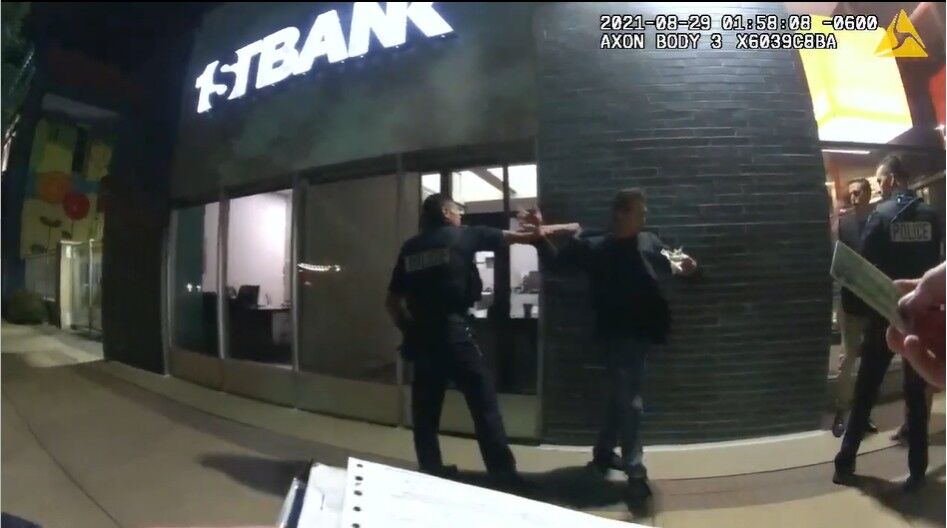Appeals court overturns Jeffco drug conviction for detective’s improper testimony

Colorado’s second-highest court determined last month that a detective’s expert testimony claiming the defendant had a “classic case” of possessing drugs with an intent to distribute amounted to a fundamental error that required reversing the conviction.
State and federal courts have delineated when an expert’s testimony is improper at trial, including when an expert opines that a witness is telling the truth or that the prosecution’s allegations are true. Dustin Cole Chaney argued to the state’s Court of Appeals that a detective infringed on the jury’s responsibility to decide factual disputes by telling jurors, in his opinion, Chaney had the intent to distribute methamphetamine.
A three-judge panel for the Court of Appeals agreed with Chaney, reversing his Jefferson County conviction for possession with an intent to distribute.
Officers followed Chaney’s vehicle out of a gas station parking lot early one morning, after which Chaney voluntarily pulled over and exited the vehicle. The officers turned on their police lights and Chaney put his hands in the air and walked toward them. Upon looking into the window of Chaney’s car, police believed they saw a bag of illegal narcotics and arrested Chaney.
In total, law enforcement recovered methamphetamine, pills, and heroin in multiple bags and containers, plus counterfeit bills, syringes, a glass pipe, a digital scale and a small spoon with white residue. Given the large quantity of drugs and drug paraphernalia in Chaney’s possession, prosecutors charged him with multiple counts of possession and one count of possession with intent to distribute methamphetamine.
A jury convicted him of all offenses, but only the charge implicating distribution was the subject of Chaney’s appeal.
At trial, Chaney contested that he intended to distribute the drugs, claiming instead he was an addict and planned to use all of the drugs personally. The prosecution called as an expert witness Detective Stuart Ruybal, who had more than two decades of experience in law enforcement and recently worked with the West Metro Drug Task Force. Ruybal’s testimony touched on drug distribution methods and drug usage, learned in large part through his interactions with confidential informants.
At one point, the prosecutor asked Ruybal what his opinion was about Chaney’s claim he intended the drugs solely for personal use.
“In my opinion, this is a classic case of someone who’s possessing a variety of drugs with the intent to distribute them,” Ruybal responded. The detective reaffirmed his opinion in subsequent answers to questions, and the prosecutor referenced the testimony in closing arguments.
“Detective Ruybal, who has no bias towards this defendant, who deals with what he told you, kilos and pounds – and kilos and tons of drugs in undercover operations,” the prosecutor said, “his opinion is unbiased, and he tells you, based on his expertise, this is intent to deliver.”
Chaney turned to the Court of Appeals, arguing it was the jury’s role to believe whether Chaney intended the drugs for personal consumption or whether he intended to distribute them. Chaney drew a parallel to a Colorado Supreme Court decision from 2000 involving a plainclothes detective who stopped and searched a man at Denver International Airport because the man fit the detective’s profile of a drug courier.
The Supreme Court decided the detective’s testimony about the profile was not proper evidence at trial, given that the detective’s profile characteristics were not reliable indicators of guilt. The factors the detective spotted on the defendant – wearing a cross, not carrying books or magazines, traveling in jeans – did not make it more or less probable the defendant was guilty. Ruybal’s testimony allegedly suffered from the same lack of reliability.
“A drug transaction expert can testify to facts of consequence such as the significance of drug packaging and weight, scales and cutting agents, and other activities consistent with drug trafficking, but it is the jurors’ role to make the final determination whether a defendant possessed the requisite mental state to commit a drug offense,” Deputy State Public Defender Mackenzie Shields wrote on behalf of Chaney.
The government defended Ruybal’s qualifications and argued the detective had only testified the evidence in Chaney’s car was consistent with an intent to distribute, based on his experience. Furthermore, the Colorado Attorney General’s Office pointed out, there was overwhelming evidence Chaney was guilty based on the magnitude of illicit materials uncovered in his vehicle.
The Court of Appeals panel ultimately agreed with Chaney.
“We note the danger that the jurors were likely to afford Ruybal’s improper opinion testimony ‘particular weight and credibility’ because he testified as an expert, was employed by the government, and testified to somewhat technical matters,” wrote Judge Anthony J. Navarro in the June 30 decision.
Navarro elaborated that Ruybal had gone farther than saying Chaney’s behavior was consistent with an intent to distribute, and instead testified to Chaney’s actual intent to distribute, in the panel’s view. Jurors may have otherwise believed Chaney was a drug addict who intended to use the drugs himself, as Ruybal even conceded the amount of meth in Chaney’s vehicle was not “a large sum.”
“Therefore, but for Ruybal’s inadmissible opinion that Chaney actually had the intent to distribute, Ruybal’s testimony could have supported, to some degree, Chaney’s defense of possession for (heavy) personal use,” Navarro wrote.
The panel ordered a new trial for Chaney only for the charge of possession with intent to distribute.
The case is People v. Chaney.














